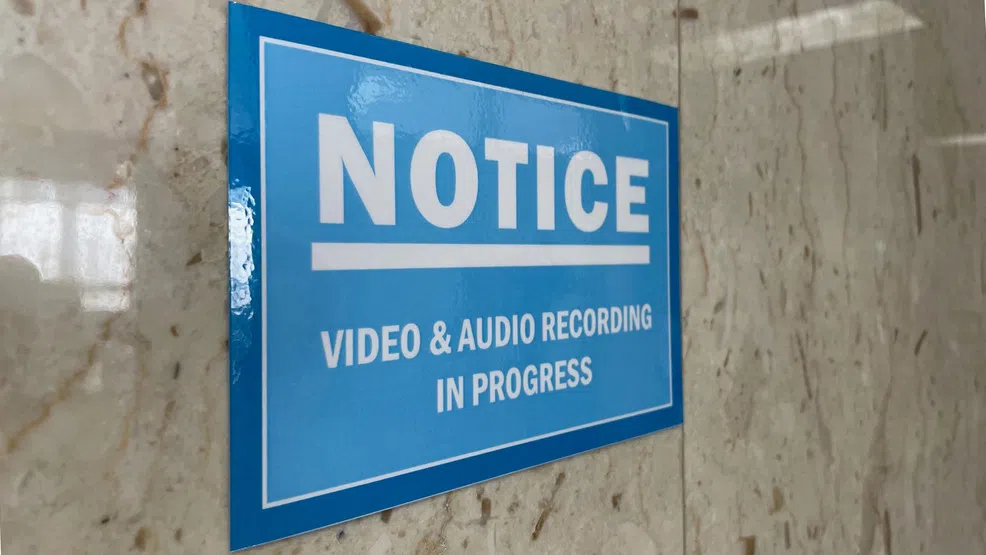GREEN BAY, WI (WTAQ-WLUK) – Green Bay city council members began to have their questions answered about the use of audio surveillance at city hall on Tuesday evening.
The Wisconsin Senate and three individuals filed a lawsuit in Brown County Circuit Court last week, alleging the surveillance violates the law and constitution.
Members of Mayor Eric Genrich’s administration have said microphones were installed on the first and second level hallways of city hall between winter 2021 and summer 2022 for safety reasons.
The finance committee meeting Tuesday was the first formal discussion about the surveillance between council members.
“We’re talking about how do we protect the financial well-being of the city and we don’t even know why we’re in the position that we’re in,” said Brian Johnson, the chair of the committee and the council’s vice president.
The discussion comes three weeks after most city council members first learned microphones have been recording hallway conversations outside the clerk’s office, council chambers and the mayor’s office.
“So, the purchase of the equipment happened without council’s knowledge?” Johnson asked Green Bay City Attorney Joanne Bungert.
“Correct, yup,” said Bungert.
Bungert was peppered with questions during the meeting. She answered many by telling committee members the question would be better suited for outside counsel, which was retained to defend the city’s stance that the audio recording is lawful. It is a stance some council members disagree with.
“We’re going to get one-sided legal advice right now from your outside counsel,” said Alderperson Chris Wery. “This is why we need our own legal counsel.”
“Council does not have the legal authority to hire their own legal representation,” said Bungert.
Bungert says the city’s insurance policy requires outside counsel be hired, and the insurance company chooses the attorney. Ted Waskowski and Kyle Engelke, of Stafford Rosenbaum, will represent the city.
Bungert says the city pays the first $250,000 of legal fees, including potential damages and settlements, and insurance covers the rest up to $1 million. City officials say they have excess coverage for situations that call for it, but they couldn’t say how much off hand.
“So, that is budgeted for,” said Bungert. “So, this isn’t a situation where we’d have to find money to cover.”
Bungert also explained the council was never consulted on the purchase of the surveillance equipment because the cost didn’t meet the necessary threshold.
“If it goes above $25,000, it then has to go — even though it’s budgeted for — we still need to get requisite approval from finance and council to make that purchase,” said Bungert, who could not provide an exact amount for the equipment or data storage.
“We’re told it’s because of security reasons, yet we didn’t have a policy discussion or a budget discussion around securing this building,” said Jesse Brunette, the city council president.
“I think if it was presented that way, a good number of us, if not all of us, would have said, ‘Yes, pay this amount of money to secure our employees.’”
One member of the public chimed in on the topic.
“No ordinary citizen that I’ve spoken with, and there have been many, agrees that secret audio surveillance should have been done under any circumstance in city hall,” said Scott Liddicoat, a Green Bay resident.
At the end of the 35-minute discussion, three of four committee members indicated they still have questions that they hope are answered soon.
We may find out more about this issue Wednesday when the city’s parks committee meets. The parks department oversees city hall operations, so the committee will be discussing a review of the surveillance and the possibility of a policy to end the audio recording.
On Thursday, a Brown County Circuit Court judge will hear a temporary restraining order request to stop the audio surveillance while the lawsuit plays out.
Next Tuesday, the city council is expected to meet with the outside counsel to hear the city’s legal strategy in the case.





